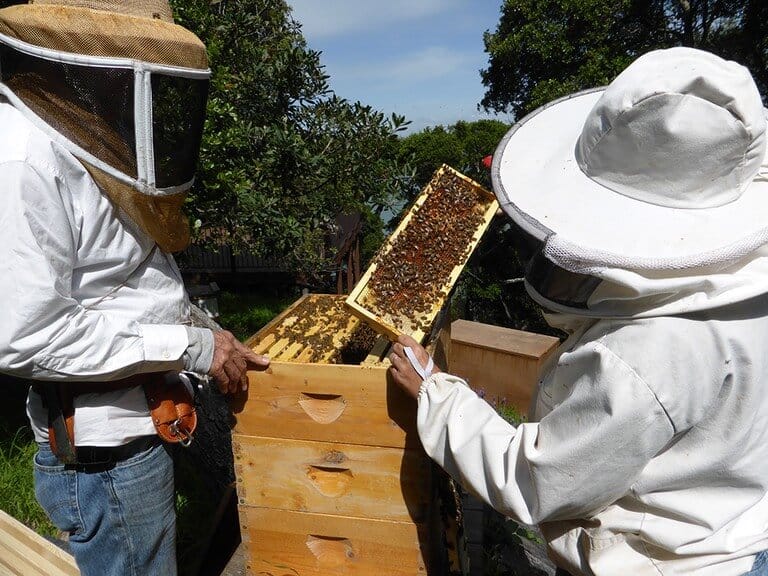Feeding honey bees a natural diet of pollen makes them significantly more resistant to pesticides than feeding them an artificial diet, according to a team of researchers, who also found that pesticide exposure causes changes in expression of genes that are sensitive to diet and nutrition.
“Honey bees are exposed to hundreds of pesticides, while they are foraging on flowers and also when beekeepers apply chemicals to control bee pests,” said Christina Grozinger, professor of entomology and director of the Center for Pollinator Research, Penn State. “Our study demonstrates that exposure to non-lethal doses of at least two of these pesticides causes large changes in the expression of genes involved in detoxification, immunity and nutrition-sensing. This is consistent with results from previous studies that have found that pesticide exposure compromises bees’ immune systems. Furthermore, our study reveals a strong link, at the molecular level, between nutrition, diet and pesticide exposure.”
Exploring this link further, the researchers found that diet significantly impacts how long bees can survive when given lethal doses of a pesticide.
“This interaction between pesticide exposure and nutrition is likely what’s at play in our finding that feeding bees a complex diet of pollen — their natural diet — makes them significantly more resistant to lethal doses of a pesticide than feeding them a more simple, artificial diet,” said Daniel Schmehl, postdoctoral researcher, University of Florida.
To determine the impact of pesticide exposure on gene expression patterns in honey bees, the scientists first fed one of two miticides — coumaphos or fluvalinate, the two most abundant and frequently detected pesticides in the hive — to bees for a period of seven days. On the seventh day, the researchers extracted RNA from the bees, attached a fluorescent marker to the RNA and examined differences in gene expression patterns — indicated by changes in patterns of fluorescence — between the pesticide-treated bees and the control bees.

